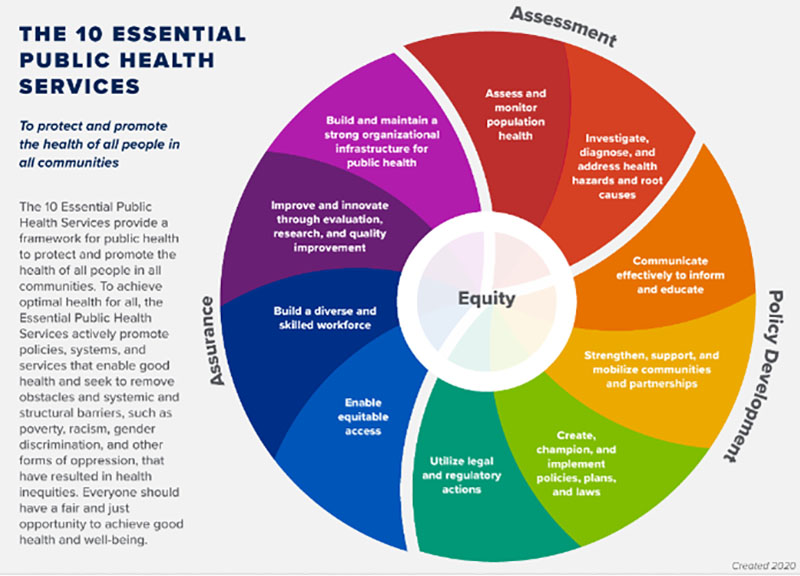3 Core Functions of Public Health | Insights Archive - Fairfield University
When people think about healthcare, they often picture doctors, nurses, dentists, and other clinical health professionals clad in a white coat or scrubs. But there's an entirely separate sector of care that has an undeniable impact on the well-being of our community members: public health.
Those who work in the field of public health are responsible for promoting and protecting the health of people and their communities. While a clinician treats patients who are sick, public health professionals strive to prevent those people from getting sick in the first place.
But what does that actually mean? Join us as we break down the core functions of public health and examine just how important they are to community well-being.
Breaking down the core public health functions
Public health professionals work hard to ensure healthy living conditions for the people in their communities. In practice, this involves conducting scientific research, developing evidence-based programs and interventions, educating the public about health-related topics, aiding in policy development, and more.
The industry consists of a wide range of different specialists. Examples of public health careers include statisticians, health educators, outreach specialists, community planners, epidemiologists, occupational health and safety professionals, and public policymakers.
While the duties for each career path will vary, all public health positions operate according to the same mission. This is to fulfill the three core functions of public health: assessment, policy development, and assurance. These have become the guiding principles that define public health careers, as they all work toward the goal of achieving health equity.
A task force of public health experts, leaders, and practitioners, as well as experts from federal agencies like the Centers for Disease Control and Prevention (CDC), developed this well-recognized framework to outline the public health activities all communities should undertake.
Further, the CDC's 10 Essential Public Health Services provide a more detailed framework for what this should look like in practice. Consider the following outline:

1. Assessment
This core attribute of public health is important because assessment provides organizations with comprehensive information about a community's current health status, needs, and challenges. Such information can be key in developing community health improvement plans, determining how resources should be allocated, and more.
This core function includes the following essential services:
- Monitoring population health status, factors that influence health, and community needs and assets.
- Investigating, diagnosing, and addressing health problems and hazards affecting the population.
2. Policy development
Public policy can be one of the most effective ways to improve the health of communities, and public health professionals play an important role in the process of policy development. They may conduct policy analyses, develop key community partnerships, and help promote and implement evidence-based interventions.
This core function includes the following essential services:
- Communicating effectively to inform and educate people about health, factors that influence it, and how to improve it.
- Strengthening, supporting, and mobilizing communities and partnerships to improve environmental health.
- Creating, championing, and implementing policies, plans, and laws that impact community health.
3. Assurance
The final core function of public health is focused on ensuring the findings gathered through assessment and policy-related research are effectively implemented. Professionals in this realm are responsible for the allocation of resources, be they supplies/equipment or properly trained employees.
This core function includes the following essential services:
- Utilizing legal and regulatory actions designed to improve and protect the public's health.
- Ensuring an effective system that enables equitable access to the individual services and care needed to be healthy.
- Developing and supporting a diverse and skilled public health workforce.
- Improving and innovating public health functions through ongoing evaluation, research, and continuous quality improvement.
- Building and maintaining a strong organizational infrastructure for public health.
Make an impact with a public health career
If you're drawn to the prospect of dedicating your professional life to promoting, protecting, restoring, and improving the health of those around you, it's no wonder you may be considering a career supporting one of these core functions of public health. These professionals are experts at improving the wellness of their communities.
One of the most effective ways to enable yourself to make a difference as a public health professional is to advance your skills with a graduate degree from a well-respected, interdisciplinary public health program.
Visit Fairfield University's Master of Public Health (MPH) program page to learn more.
Comments
Post a Comment